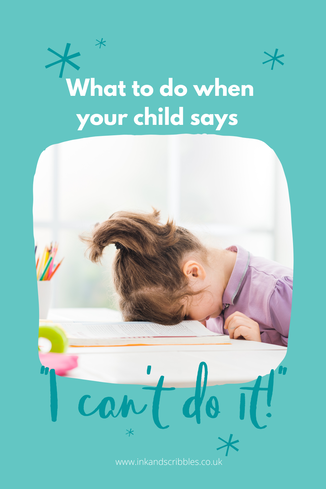What if the fear of your child lacking self-esteem is leading you to a response that tries to make your child feel OK by telling them they’ve done well, rather than guiding them to discover and believe that themselves? A response that helps you feel better in the moment but doesn’t build foundations of resilience for your child. It’s easily done. And it ‘feels’ like the right response in the moment. But what if I told you that you didn’t always have to panic respond with a, “but that’s brilliant, darling” when your child clearly doesn’t think it is? How would that feel? Liberating? We need to accept as mothers, that there will be times our children lack confidence in themselves and that our job is to teach them resilience skills and guide them, not fix it for them. To do this we need to free ourselves from using our children’s emotional ups and downs as a measure of how good a job we are doing. A good mother and a child with emotional struggles are not mutually exclusive. When we instinctively react to smooth the moment over, we're actually reacting to soothe ourselves under the illusion we're helping our children. Like a mama bear in protect mode, hearing negative words that sound destructive and damaging coming from the mouth of someone we love more than life itself, feels like facing our worst nightmares. It hurts. Taking a moment to read the situation is a skill, but one we can all learn. And those moments of pause can reduce our parenting anxiety and support our child at the same time. Let me tell you what I mean ... A mum told me that this week her two-year-old finished a drawing activity and said it wasn’t very good. A conscious parent who praises efforts, she felt a little taken aback and confused what might make him think such a thing. But looking beyond the words themselves, what if he actually meant he wanted his drawing to be better? Would that be perceived more favourably. Perhaps his age-related language limitations meant he communicated a black and white analysis (like or dislike), but what if he wanted it to it to be better or different? That would show growth mindset, and when you think of it as such then the response would be different. Rather than telling him his drawing was good, which is at odds with his thoughts, we could support his growth mindset by asking him if he wanted it to be tidier or more colourful.
I get this frequently with Miss Scribbler. The link between thoughts and emotions isn’t always clear, especially when you’re ten years old with hormones at play. We often hear, “I’m no good at this”, or “I can’t do it.” When I suggest that she means something else, for example, I might say, “You’re frustrated that this feels so hard”, she feels validated, understood, calmer and her thinking is reframed. All of this from one intuitive sentence. It takes effort, self-regulation and our own emotional growth so there’s certainly no magic wand (and obviously there is always a possibly that your child is articulating exactly what they mean and in that situation instinctive action from parents is necessary). But pausing to figure out what they really mean or what they really think pays off. Guided by your intuition you can scaffold the building of their emotional intelligence. It means we don’t diminish their opinions. Instead, we validate them. It means we encourage them to come to us, rather than ceasing to open up because of a perception that they aren’t understood. 5 QUESTIONS TO HELP YOU PAUSE AND INTERPRET:
0 Comments
Leave a Reply. |
Categories
All
Archives
April 2024
AuthorHey! I'm the founder, creator and voice of Ink and Scribbles. Sharing thoughts on child well-being and parenting that are based on my teaching and parenting experience, and NLP learning. |


 RSS Feed
RSS Feed